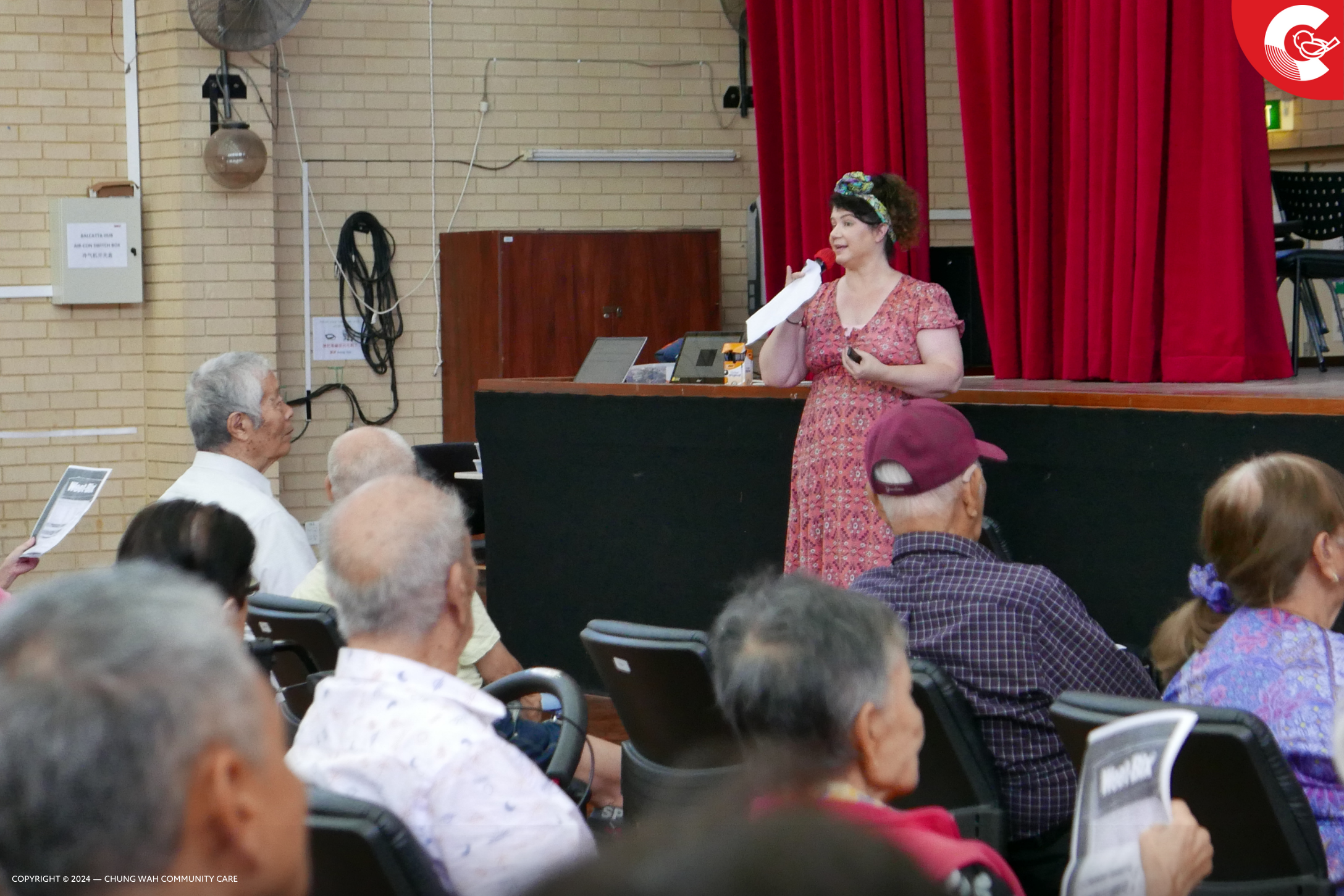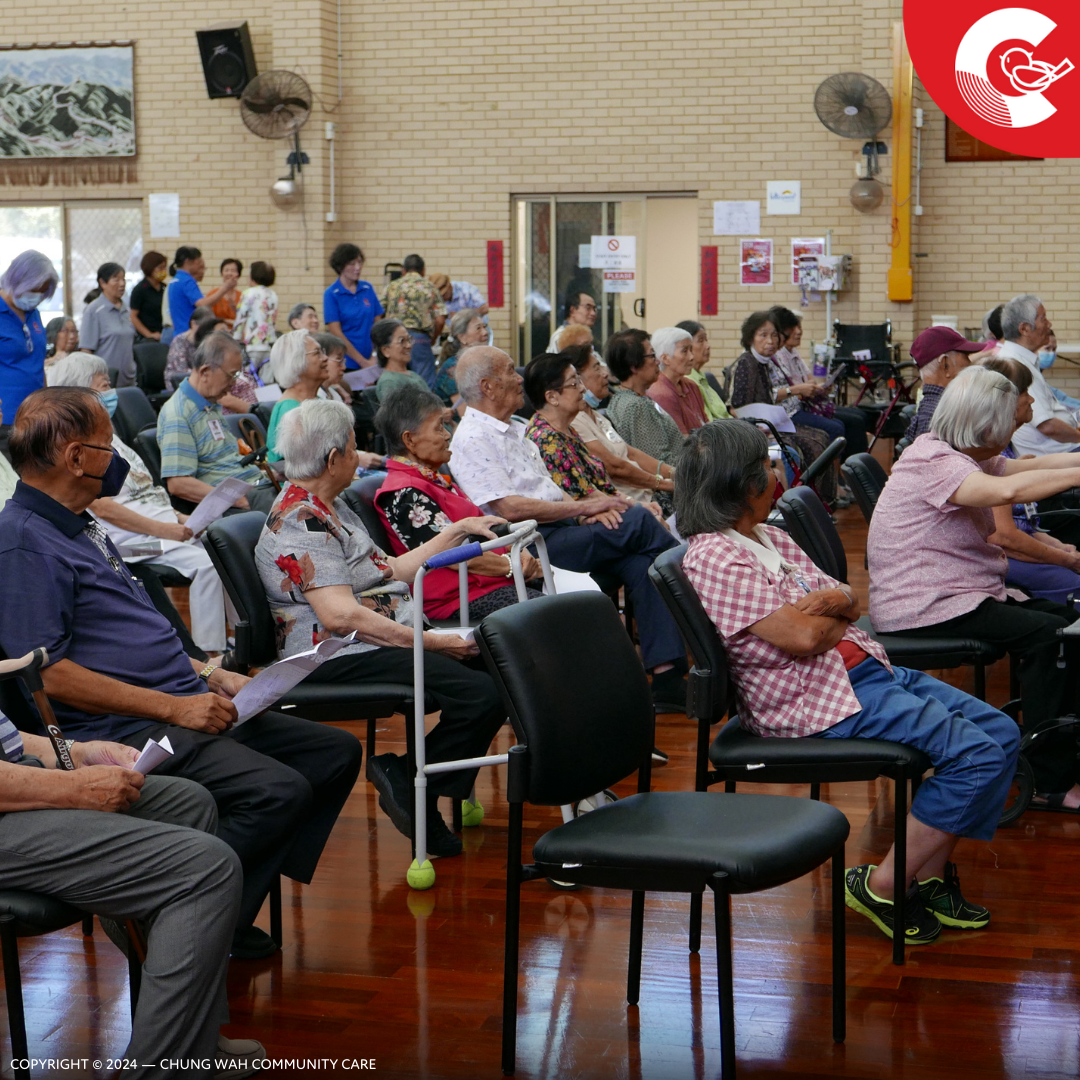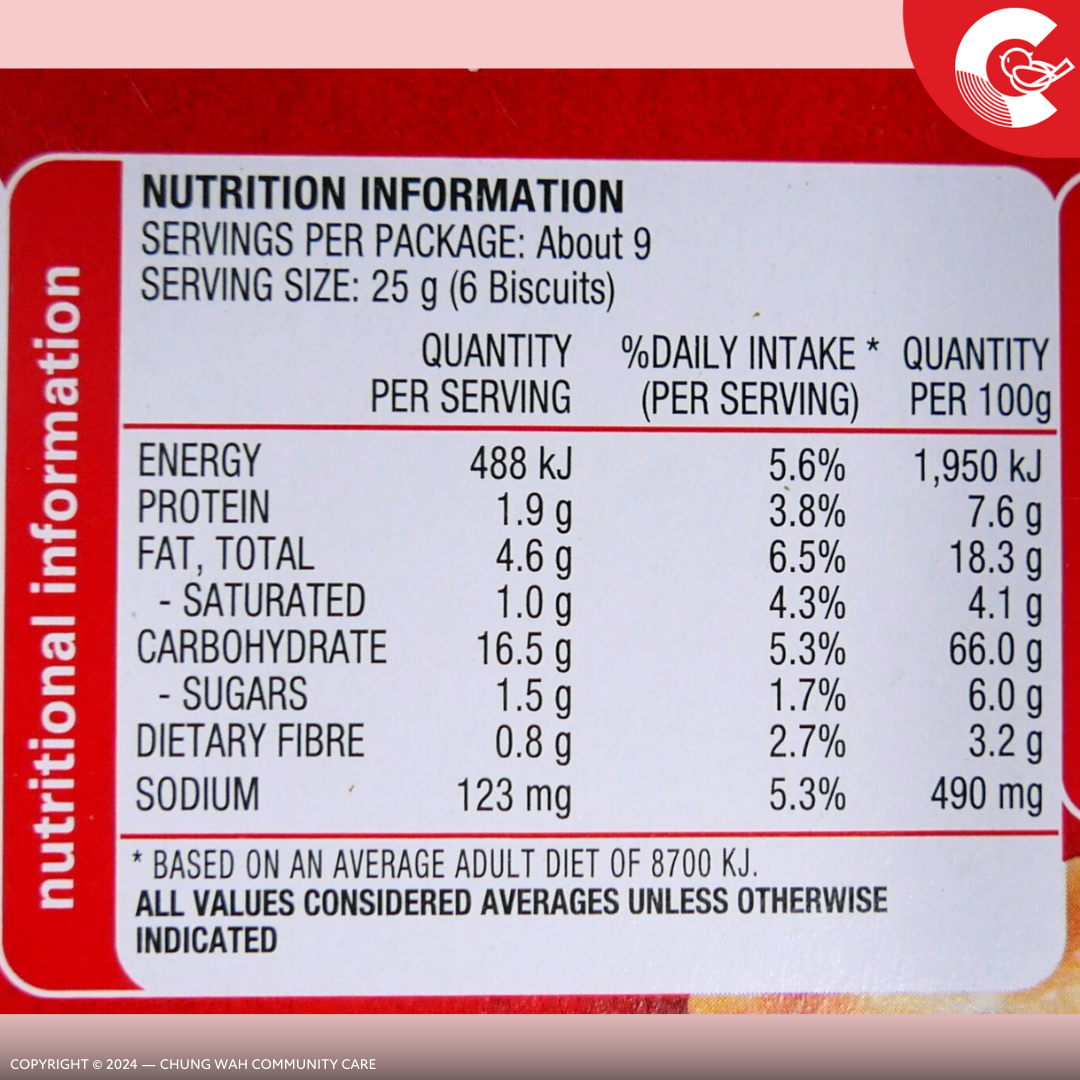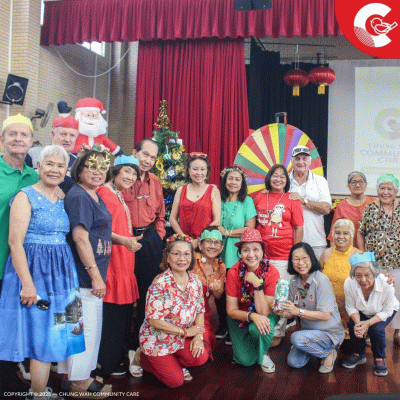
As people age, their bodily needs and metabolic processes change, making nutritional knowledge crucial for older adults.
Understanding how to obtain adequate nutrition through a balanced diet is essential for seniors, aiding in maintaining their health, vitality, and quality of life. To address this, Chung Wah Community Care (CWCC) hosted a nutrition seminar at the Balcatta Community Hub, inviting Janine, a dietitian from Ishar Multicultural Women's Health Service. This health talk, "Food Labels: Fat & Sugar," focused on the critical aspects of nutrition for seniors.

In today's world, the pursuit of delicious food is ever-growing. Still, excessive sugar and fat intake can pose potential health risks, especially for older adults. These risks include increased chances of cardiovascular diseases, obesity and related ailments, a heightened risk of diabetes, and weakened immune systems. The speaker began by introducing Australian legal regulations on food labelling. Australia's efforts in food labelling legislation aim to provide consumers with more information, enabling them to make informed dietary choices. Food label regulations cover nutritional information, allergen declarations, origin labelling, and health claims, all intended to protect consumer health and promote transparency and accountability in the food industry.
Regarding health protection, reading and understanding food labels, including allergen warnings, is vital. Food labels usually contain nutritional information, a list of ingredients, allergen warnings, and expiration dates. Nutritional information provides the nutritional content per serving, including energy, protein, fat, and carbohydrates. The ingredients list details all the components in the food, arranged in descending order by weight. Allergen warnings indicate the presence of common allergens, such as peanuts, eggs, and dairy products, which are crucial for those with food allergies.

The speaker further explained the differences between "Use By" and "Best Before" dates. "Use By" indicates the date before the food should be eaten or cooked to ensure safety and quality. "Best Before" suggests that the food will be of its best quality before this date, but it does not mean that it is unsafe or unsuitable for consumption after this date, though there may be some quality changes.
The speaker also pointed out that food manufacturers often use tactics in presenting fat and sugar content information, which can confuse or mislead consumers. They might use alternative terms for ingredients, making it difficult for consumers to understand the actual contents of the food. Additionally, some manufacturers may use small fonts or hidden placements for fat and sugar content, making it easy for consumers to overlook this information when purchasing. Therefore, consumers should remain vigilant, read food labels carefully, and learn to recognize these tactics manufacturers use to make wiser, healthier choices. The senior attendees gained valuable information from the seminar and applauded the presenter for the insights provided.

Chung Wah has been servicing the WA community since 1909, dedicated to improving the quality of life of individuals from diverse backgrounds. Moreover, Chung Wah CC has 40 years of professional care experience helping seniors and people with disabilities improve their well-being and better integrate into the community. This year's theme, "Celebrating Our Cultural Strands," reflects our 40 years of commitment to understanding, integration, and moving forward together for a more harmonious and better community for all.





